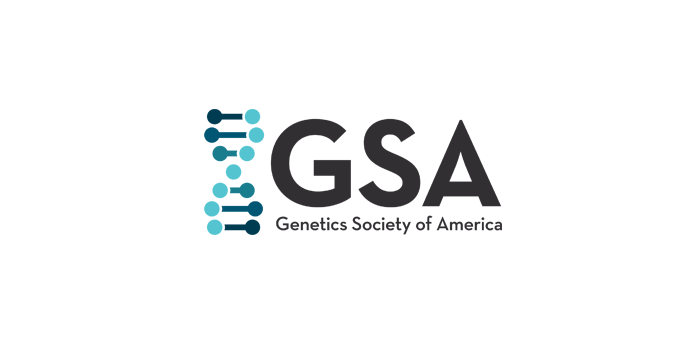GSA announces its Awards Audit Task Force and asks for community input.
Each year, the Genetics Society of America confers five major awards: the Edward Novitski Prize, the Elizabeth W. Jones Award for Excellence in Education, the Genetics Society of America Medal, the George W. Beadle Award, and the Thomas Hunt Morgan Medal. These awards are designed to recognize and celebrate excellence across many facets of practicing science using genetics: creativity, education, service, achievement, and contribution to the field. The GSA is proud to play this role in honoring outstanding members of our community.
It is appropriate, from time to time, to step back and take stock of our Awards program to ensure it is serving its purpose fairly and equitably.
Is the nomination process clear and accessible? Is the award voting process biased? Are the interests of all members of the community represented? Is each award clearly defined? Does each award represent the evolving vision and work of the community? Are there gaps in our portfolio where new awards could be proposed? And perhaps most importantly: which scientists are missing from our nomination and awardee lists?
For now, we know that the individuals nominated for and receiving these awards do not fully reflect the diversity of scientists who use genetics. Indeed, a recent commentary from Yuh Nang Jan (University of California, San Francisco) noted that Asian scientists are underrepresented in US-based research prizes compared to their representation in other metrics of scientific success. Other scientific societies have also been doing work in this area; ASCB’s effort, led by Bill Bement (University of Wisconsin–Madison) gave rise to important recommendations we can all learn from.
GSA recognizes the importance of continuous and active work toward building a more equitable field. One critical component of this work is reflecting on our processes and programs and making needed changes; progress and process are iterative. We fully recognize that the process of further diversifying the pool of nominees and awardees can—and must—be improved.
To this end, in May 2021, the Board of Directors recognized this need and initiated an audit of our awards program to be completed this year.
Swathi Arur (University of Texas MD Anderson Cancer Center) and Erika Matunis (Johns Hopkins University) agreed to chair this effort. As the current and former chair of the Awards Committee (respectively), they are uniquely positioned to direct this work. Joining them on the Awards Audit Task Force are Derek Applewhite (Reed College), Steve Farber (Carnegie Institution for Science), Mary Lou Guerinot (Dartmouth College), Leonid Kruglyak (University of California, Los Angeles), Terry Magnuson (University of North Carolina–Chapel Hill), Mi Hye Song (Oakland University), and Mariana Wolfner (Cornell University).
This spring, the Task Force will meet to review processes and propose changes before the 2022 award nomination period opens in August.
As part of this important work, it’s also critical that we hear from you. GSA would like to invite our community to play a role in this effort through two mechanisms: by participating in focus groups and by sharing thoughts and suggestions through an anonymous, online survey.
- To volunteer for a one-time, one-hour virtual focus group to take place in March or April, please see here. The task force will be in touch with you soon. Please volunteer no later than March 4, 2022.
- To share your thoughts, suggestions, and feedback on the awards process, please see here. Your comments will be anonymous unless you choose to sign them. The feedback form will be open through April 30, 2022.
The goal of this Task Force is to propose changes to our current awards slate (wording of awards, criteria for awards, proposal of new awards, etc.), with a major goal of improving our nomination processes to ensure that our awards and recipients reflect the diversity of the genetics community. After the audit process, the Task Force will submit a proposal to the Board of Directors for review and approval. We will then publish a blog post detailing our findings and resulting changes.































